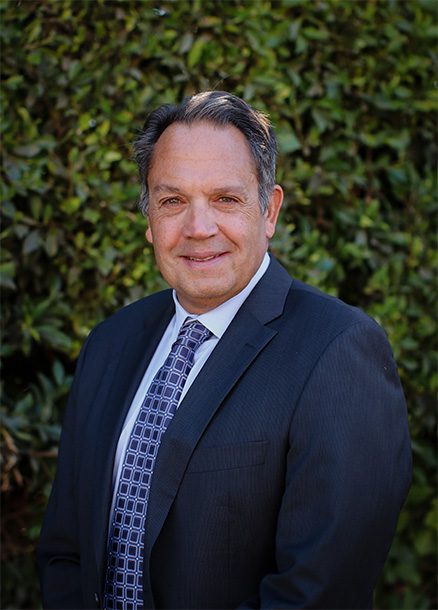Divorce And Estate Planning
An estate plan covers many issues, including who will receive assets of an estate and the authority a person has to handle assets upon the death of another person. Often, a spouse is named in an estate plan. If spouses divorce, important issues typically need to be reevaluated, including life insurance, retirement plans, power of attorney, and wills and trusts.
Not only that, but California law can automatically affect the viability of the estate plan due to divorce. Estate plans that are not effectively updated due to a divorce can result in a host of undesirable consequences (e.g., an individual’s assets mistakenly going to their ex-spouse).
Divorce and Estate Planning Attorneys
In California as with most states, estate planning is something that needs to be addressed when a person has major changes in their life. This includes divorce and separation. If you are going through or have recently gotten a divorce, it is crucial that you update your estate plan.
To have an experienced estate planning lawyer review your current estate plan and make amendments, contact Botti & Morison Attorneys Christopher Botti and Paul Morison have over 90 years of combined experience in estate planning and will ensure you and your estate are protected.
We Have Estate Planning Offices Throughout Southern and Central California
Botti & Morison Estate Planning Attorneys have offices in Ventura, Westlake Village, Santa Barbara, Valencia, Bakersfield, and San Luis Obispo. Call today at (877) 585-1885 to set up your first consultation free of charge.
Information Center
Divorce’s Impact On Life Insurance And Retirement Plans
The owner of life insurance policies and retirement plans generally determines the beneficiaries of those accounts; however, a divorce decree could affect the ownership or beneficiaries of those plans (e.g., the court could require the spouse to transfer half of the assets in the spouse’s retirement account to the other spouse). Sometimes divorce decrees allow each spouse to keep their own life insurance and retirement plans. In this case, it is crucial to see that the named beneficiaries on those plans are updated (e.g., removing the ex-spouse as a named beneficiary).
Power Of Attorney
Although estate planning often addresses what happens when a person dies, a power of attorney addresses important matters that occur when the person is alive. The individual who executes the power of attorney (the principal) can grant someone else (the attorney-in-fact) a significant amount of control (general power of attorney) or a limited amount of control (limited power of attorney) over the individual’s financial and healthcare decisions. This authority is typically used when a person can no longer make their own financial decisions. If one spouse names the other as attorney-in-fact, the other spouse’s authority might not automatically end upon divorce. Spouses undergoing the divorce process or recently divorced often change their powers of attorney to different trusted individuals.
Wills
A will can determine what happens to someone’s assets when that person dies. The person who creates the will, known as a “testator,” can grant their property to nearly any other person the testator wishes. Those receiving assets under the will are called “beneficiaries.” A will also identifies a person as the “executor,” who is to carry out the terms of the will and distribute assets. It is common for one spouse to name the other as both the executor and the primary beneficiary under the will.
When spouses divorce, the impact on an existing will and the testator can be significant. Under California law, a divorce decree automatically revokes a will provision naming a spouse as executor or beneficiary. If a testator dies without changing the will, courts typically name an alternative person to be the executor of the will. Property designated as “non-marital property” (property that would have gone to the ex-spouse) would most likely go to the testator’s children.
If a divorce decree identifies any property in the will as “marital property,” the former spouse is entitled to receive some of that property in the divorce. For amicable families, these legal outcomes can work well. For high-conflict families, however, there is far greater potential for lengthy and stressful court proceedings. Will disputes can become complicated quickly, but a highly qualified estate planning attorney can help ensure that a will truly reflects a testator’s wishes.
Trusts
A trust is similar to a will, as they are legal instruments used to grant property to named beneficiaries. The person who creates the trust names a “trustee” or a person authorized to carry out the trust’s intent. Like wills, trusts can be heavily impacted by divorce. If a former spouse is named the trustee of the trust, California law automatically revokes the ex-spouse’s authority as trustee. The law assumes that the spouse who created the trust would not want an ex-spouse acting as a trustee. Still, an individual who created the trust should consult with an estate planning attorney following their divorce so that the trust documents are updated, successor trustees are appointed, and proper beneficiaries are designated.
Finally, problems can occur when property in the trust is marital property. In divorce, marital property is subject to equal division between spouses. If a divorce decree identifies trust property as marital property, the divorce decree takes priority over the trust, and the other spouse can take some of the trust’s assets. Anyone concerned about the impact of their divorce on trust assets is advised to consult with a qualified estate planning attorney early in the process to resolve disputes before they begin.
Additional Resources
California Trust Law | California Legislature
Guided by California Trust Law, provided in this resource, skilled estate planning attorneys help their clients plan estates using many types of trusts. If divorce is a concern, an estate planning attorney can help create a trust appropriate for a particular family’s circumstances.
Estate Planning | California State Attorney General
California’s Attorney General provides general information to those interested in developing their estate plans. This website answers some basic questions to help clients prepare to meet with their estate planning attorney.
Divorce and Estate Planning Services in Ventura County, Los Angeles County and Central California
If you are considering divorce or beginning the process of getting divorced, you must review your estate plan to make sure it reflects your life change. To have a skilled estate planning attorney help you navigate this process, contact Botti & Morison Christopher Botti and Paul Morison at Botti & Morison have 90 years of combined experience assisting individuals and families with their estate plans.
Estate Planning Attorneys in California
Our estate planning lawyers have decades of experience helping individuals and families set up tailored estate plans. Call today at (877) 585-1885 to set up your first consultation free of charge.
Botti & Morison accepts clients throughout California and has offices in Ventura County, San Luis Obispo County, Los Angeles County, Kern County, and Santa Barbara County.






